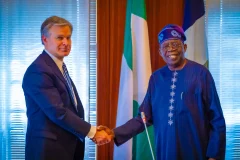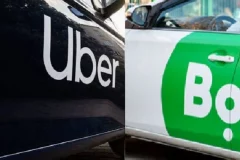

Good morning ☀️
We need your help! Could you let us know what you think about TC Daily so far?
Think of it as your chance to become the editor-in-chief (without the boring meetings). Start your week by doing us a favour, and tell us what you think in two minutes.
What’s the future of ISPs in Africa?
Over the past two weeks, I have become a small menace to the League of Legends online gaming community—partly due to my three-year experience in playing the game—but also because I now have access to Starlink which means I lag a lot less and my plays are faster at 122MBPS. Chances are that if you find any Nigerian with internet speeds measuring in megabytes per second, they’re not using traditional internet service providers. While Starlink has just about 24,000 users in Nigeria, it’s steadily gaining credence across other African countries too. In the space of one week in May, for example, it got licensed in Zimbabwe and Botswana.
Outside the ten or so countries where it’s legally available, users in other countries like Senegal are risking jail time just to use the service. Other countries like Ghana are also developing their own satellite internet services. To understand the impact of these new technologies, I spoke to Diseye Isoun, founder of internet service provider Content Oasis.
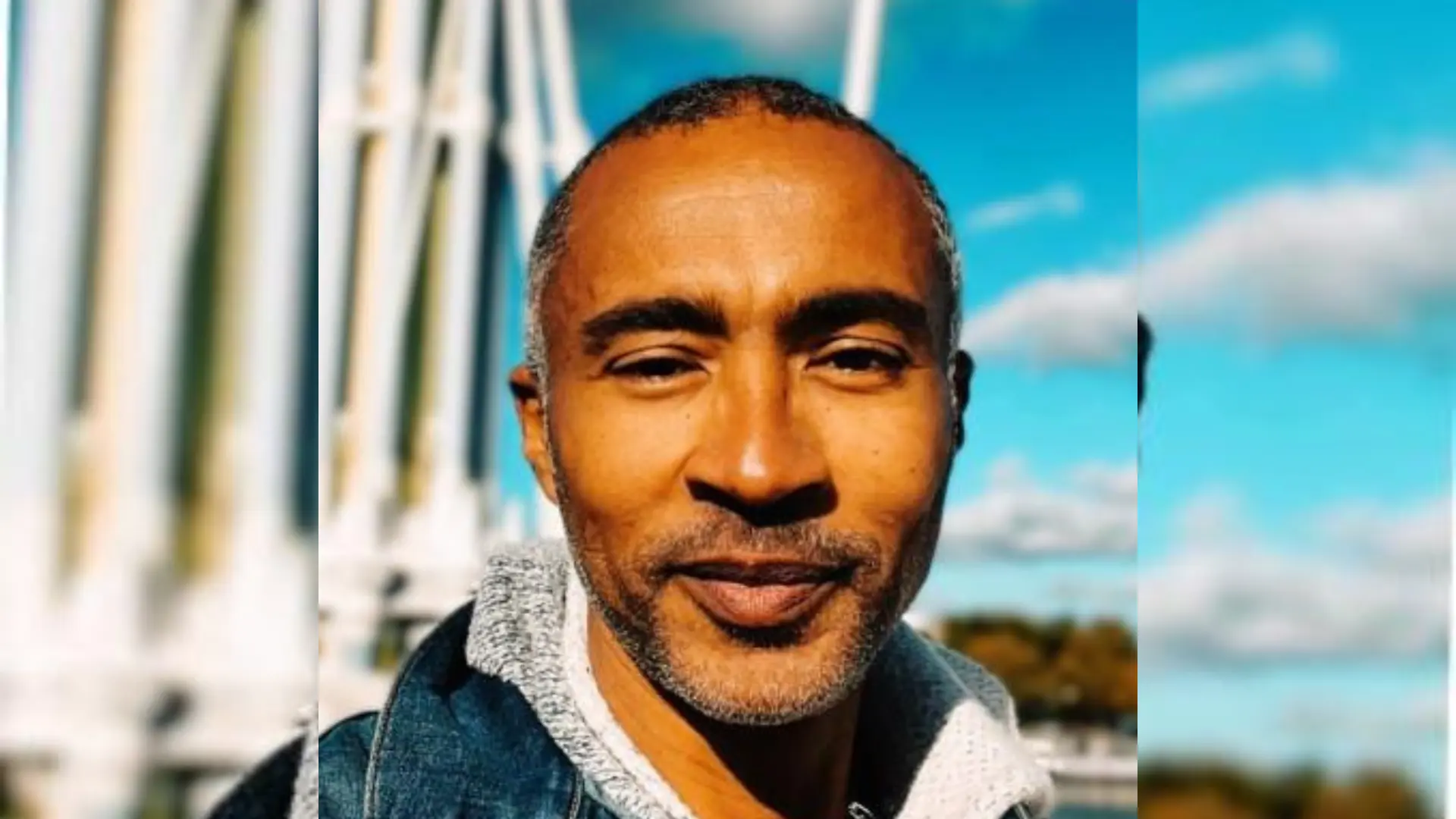
TC: With Starlink now available in over 10 African countries, how does this impact traditional ISPs in Africa?
Diseye: ISPs in Nigeria and many other African markets are struggling. According to the NCC, the ISP ecosystem is generally weak, with 98–99% of internet access coming through mobile devices and telcos (MNOs). Less than 1% of internet access is through fixed connections like fixed wireless access or fibre to the home.
Starlink brings a new dynamic by being a non-MNO player and has quickly gained traction as an ISP, with 24K terminals as of Q4 2023. However, purchasing power challenges in Africa make the one-time equipment fee a significant impediment for most Africans despite Starlink’s lower price point in Africa compared to other markets. than the rest of the world ($250-$350). Two other significant hurdles beyond the one-time fee are the equipment’s shortened lifespans caused by an unreliable, surge-prone power supply and the risk of vandalism and theft of the outdoor component of the equipment. While Starlink may capture the high-end broadband market, penetrating the MNO business or underserved markets is a more difficult and nuanced challenge.
TC: Where do you see satellite internet playing the biggest role in bridging the digital divide in Africa?
Diseye: The role of satellite internet in bridging the digital divide in Africa depends on how players like Starlink, Amazon Kuiper, Telesat Lightspeed, and OneWeb choose to proceed and collaborate in Africa. These global satellite players make strategic commitments to different regions. These services can become more affordable if they invest and collaborate effectively in Africa.
Before Starlink, most satellite companies focused on selling equipment and reselling from a distance, treating their products as arm’s-length solutions. A deeper commitment to the African market is needed to make these services more accessible and affordable.
TC: The entry of a new player like Starlink might necessitate adjustments in regulations and pricing strategies. How can African countries ensure a healthy balance between fostering competition and protecting existing ISPs?
Diseye: Starlink can enable existing ISPs, which make up a small part of the total market. The bigger question is how they will interact with MNOs, which dominate over 90% of the market. Collaboration between Starlink and ISPs could help both parties thrive and provide better consumer services. In fact, the most dominant LEO satellite provider in Africa (that can also grab some market share from the MNOs) will be the one who cracks the code on engaging the local ISP market and making them allies, not adversaries.
TC: Do you think satellite internet will eventually replace traditional ISPs in Africa, or will they coexist and cater to different needs?
Diseye: LEO Satellite Internet will not replace traditional ISPs in Africa; they can coexist and cater to different needs. Traditional ISPs can adapt and innovate by focusing on value-added services that complement Starlink’s connection. For example, ISPs could provide community Wi-Fi, point-to-multipoint connections, campus networks, first-level support, cybersecurity, and educational tools alongside a satellite internet service. In addition, offering complementary equipment like surge protectors, solar solutions, and localized support will be crucial.
ISPs need to consider value addition and improving the internet experience for customers and specific locations, whether for SMEs, MSEs, or LSEs. By doing so, they can remain relevant and even thrive in the evolving landscape.
Moniepoint is Africa’s fastest-growing fintech
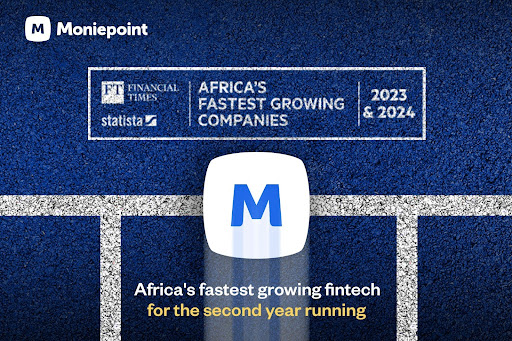
The Financial Times has ranked Moniepoint as Africa’s fastest-growing fintech based on its absolute and compound growth rate. Read more about it here.
South African crypto hustler bawls eyes out in court
Have you ever cried in public? (Don’t worry, we won’t judge…much).
Meet South Africa’s crypto starboy, Neil de Waal, who went from flaunting his fancy crypto lifestyle on social media to, well, bawling his eyes out in court!
In a dramatic turn of events, Neil de Waal, a South African cryptocurrency entrepreneur known for his flashy lifestyle and brazen claims of “mooning” his way to riches, was taken into custody and brought before the court to face charges related to his crypto trades.
De Waal was accused of operating a Ponzi scheme, committing fraud, and laundering millions in cryptocurrency.
De Waal is alleged to have promised unsuspecting investors astronomical returns on their investments, touting his “foolproof” trading strategies and “exclusive” access to lucrative crypto projects. However, it seems that the only thing that was “moon-ing” was De Waal’s bank account, as he allegedly used the funds to finance his lavish spending habits and fund his own crypto ventures.
Per Netwerk24, De Waal’s arrest warrant was issued in December 2023, but the police only managed to arrest him five months later, after he returned from a holiday in Bali.
While the court is currently tasked with unravelling the tangled web of crypto transactions and determining the extent of the damage, it has granted bail of R15,000 ($794) and ordered De Waal to check in twice a week at the Kirstenhof police station.
Now, the question on everyone’s mind is: were those tears genuine or just a clever ploy to get the judge to go easy on him? Only time (and the legal system) will tell!
Collect payments anytime anywhere with Fincra
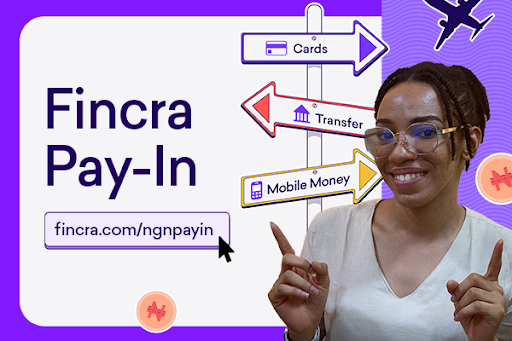
Are you dealing with the complexities of collecting payments from your customers? Fincra’s payment gateway makes it easy to accept payments via cards, bank transfers, virtual accounts and mobile money. What’s more? You get to save money on fees when you use Fincra. Get started now.
NITDA inaugurates Nigeria’s startup labelling committee
“The beneficiaries need to learn the Act, embrace the Act then kindly demand the provisions be implemented.”
That’s Oswald Guobadia, tweeting on the adoption of the Nigeria Startup Act (NSA). Guobadia, who spearheaded the creation of the Act while in office as the Special Assistant to ex-Nigerian President Muhammadu Buhari, has been vocal about the promises of the NSA which includes access to a ₦10 billion fund ($6.6 million).
For now, many of those promises might appear empty to the Startup ecosystem given how long it’s taking for the Act to be enforced. Since it was passed in 2022—exactly one year after it was drafted—very few provisions of the NSA have passed the bar. A significant stride came in November 2023 with the launch of the Nigeria Startup Portal which is the gateway for all startups that want to benefit from the Act’s promises.
So far, over 12,000 startups, 900 VC firms, 1,700 angel investors, and 900 accelerators have registered on the portal.
Now, to ensure only eligible startups get the full VIP treatment, the implementing arm of the tech ministry, NITDA, has inaugurated a Startup Labeling Committee. Think of it as a panel of startup judges, but it is way cooler (with more paperwork).
Startups that want to be correctly labelled must be less than 10 years old, registered as a limited liability company, and have at least 33% ownership by a Nigerian founder or co-founder.
So, what’s in it for startups? Well, with the label, startups will get access to seed funding, government grants, loans, and facilities from the Central Bank of Nigeria and the Bank of Industry. Plus, you’ll get financial and credit information to help your startup thrive.
The committee is a mix of officials from the government and private sector. Their job? To sift through applications, make sure startups meet the criteria, and keep those criteria fresh to reflect the ever-changing industry—if they can keep up with the applications.
While a newly-elected government might be the culprit that’s slowing down the Act’s progress, several of the country’s states are domesticating the Act so they can move quicker. Kaduna became the first to domesticate the Act in Augst 2023 while Lagos, Nigeria’s tech central, announced its Innovation Bill—its own version of the Nigeria Startup Act— in May 2024. At least 12 other states are also considering the option, but none have made concrete moves yet.
Paystack by the numbers
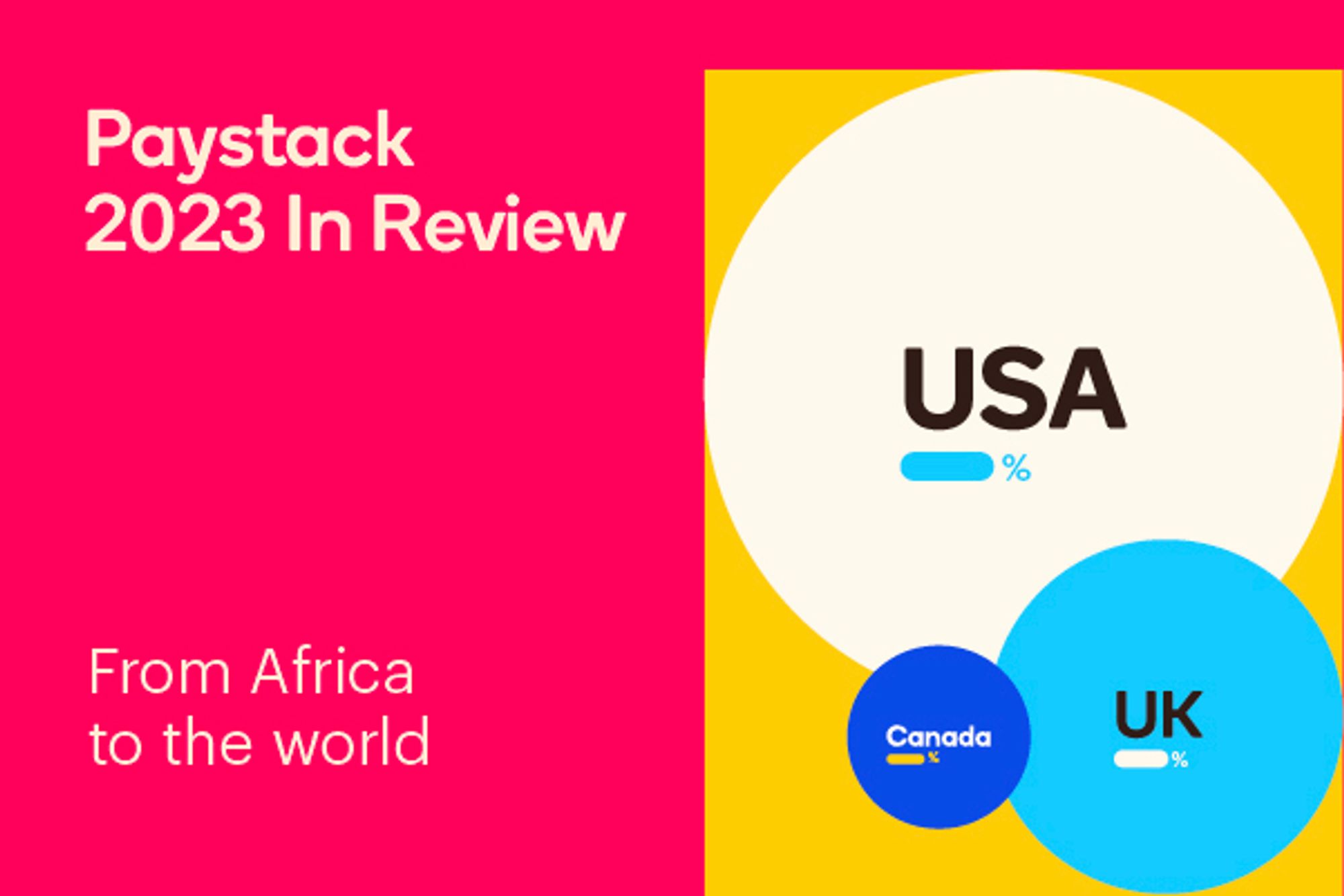
In 2023, buyers from how many countries outside Africa paid a Paystack merchant for goods and services? Find the answer here 👉🏾 paystack.com/2023
NITDA and NYSC partner to train 30 million youths
At any given time of the day, if you take a short walk across the major streets in Nigerian cities, you’re bound to see groups of young people banded together sitting idly–unemployed, and unengaged. For every job application that’s open, you’re also bound to receive hundreds of applications—some, poorly written—and many, from unqualified applicants.
If there’s one thing the Nigerian government has received well-deserved and continuous flak for, it’s the growing unemployment rate. From April 2023 to August 2023, the unemployment rate surged from 4.2% to 5%. For young people, it’s even more concerning with 53.4% of its 151 million young people without jobs.
One of the goals of the minister of communications, innovation and digital economy, Bosun Tijani, has outlined is to equip 90% of Nigerian youths with digital skills by 2030. These skills will make them employable, the minister has said.
This initiative is ambitious, considering past challenges in implementing government programmes. The Minister highlighted the ongoing 3 million technical talent program (3MTT), a government initiative aiming to train 3 million Nigerians in digital skills over the next three years as a means to achieve this goal. The programme has about 1.8 million registrations and has so far trained 300,000 people.
Minister Tijani’s goal may now seem attainable as the National Information Technology Development Agency (NITDA) is teaming up with the National Youth Service Corps (NYSC)—an agency that oversees a mandatory one-year service for all Nigerians—to train 30 million youths on digital skills. NITDA added that the Ministry of State for Youth Development, led by Ayodele Olawande, played a key role in facilitating the partnership.
The partnership is all about equipping Nigerians with digital literacy, the ability to access online services, making youths become employable, competitive for jobs, and becoming digitally savvy.
But the devil is always in the details, and we have none yet 🤷🏾. The agency has assured that it’s working on the programme but there are concerns about whether this programme will become as superficial as the tens of other programmes the Nigerian government has launched to train youths, like the GenU programme in 2021 which was aimed at training 20 million youths by 2030. After all, most Nigerian youths participate in the NYSC programme which lists on its website, that one of its goals, enabling “Nigerian youths acquire the spirit of self-reliance by encouraging them to develop skills for self employment.”
- Big Cabal Media – Event Production Assistant, Client Account Manager – Nigeria
- Leadway Assurance – Relationship Officer – Lagos, Nigeria
- Kuda Bank– Content Writer – Lagos, Nigeria
- Quidax – Market Operations Intern, Revenue Assurance Analyst – Lagos, Nigeria
- Carry1st – Growth Manager – Lagos, Nigeria
- Bumpa – Senior Mobile Engineer, Senior Backend Engineer – Nigeria (Remote)
- Comiblock – SEO Specialist, Data Engineer, Machine Learning Engineer – Lagos, Nigeria
Here’s what we’ve got our eyes on
Written by: Faith Omoniyi & Towobola Bamgbose
Edited by: Timi Odueso & Muyiwa Olowogboyega
Want more of TechCabal? Sign up for our insightful newsletters on the business and economy of tech in Africa.
- The Next Wave: futuristic analysis of the business of tech in Africa.
- Entering Tech: tech career insights and opportunities in your inbox every Wednesday at 3 PM WAT.
- In a Giffy: business decisions powered by data-driven insights and analysis you can trust.
- TC Scoops: breaking news from TechCabal
P:S If you’re often missing TC Daily in your inbox, check your Promotions folder and move any edition of TC Daily from “Promotions” to your “Main” or “Primary” folder and TC Daily will always come to you.
















